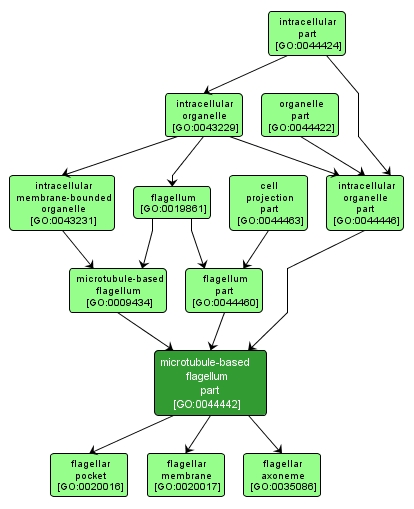| Desc: |
Any constituent part of a microtubule-based flagellum, a long, whiplike protrusion from the surface of a eukaryotic cell, whose undulations drive the cell through a liquid medium; similar in structure to a cilium. The flagellum is based on a 9+2 arrangement of microtubules. Examples of this component are found in Mus musculus. |














